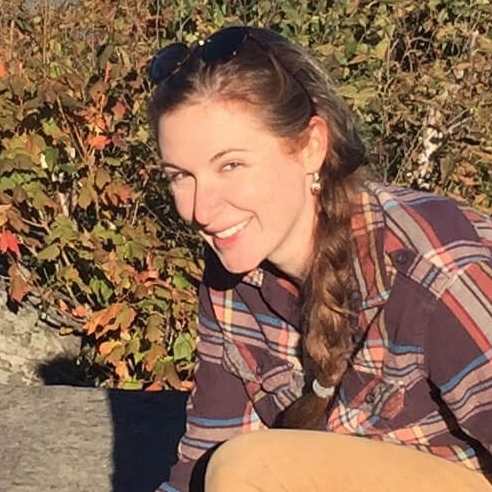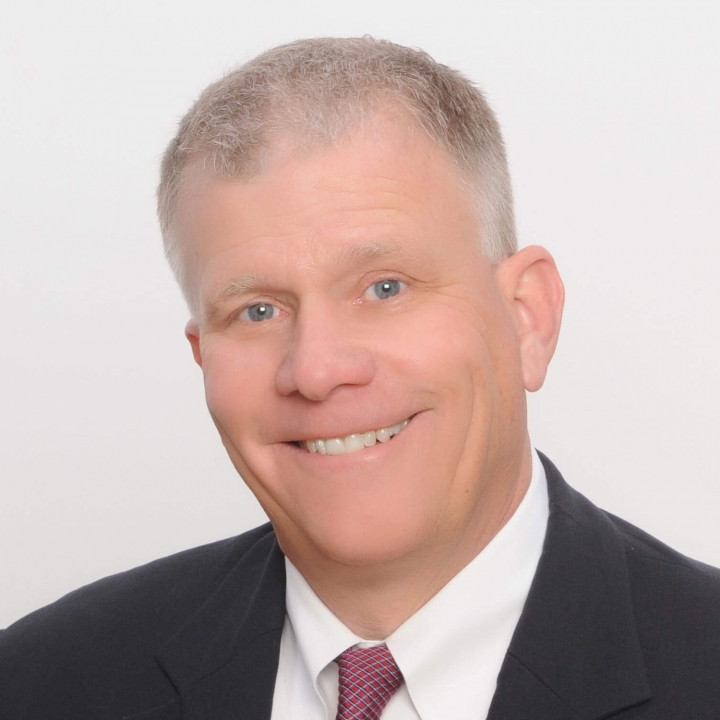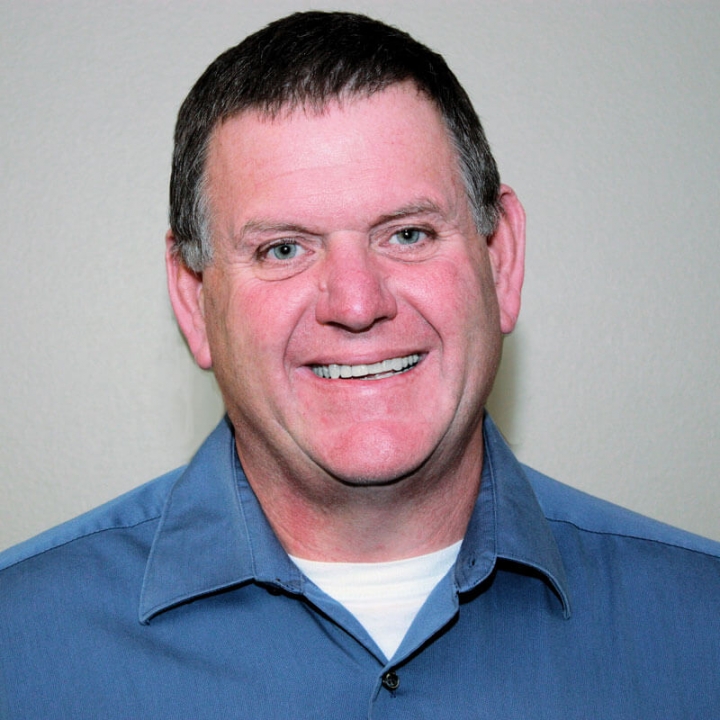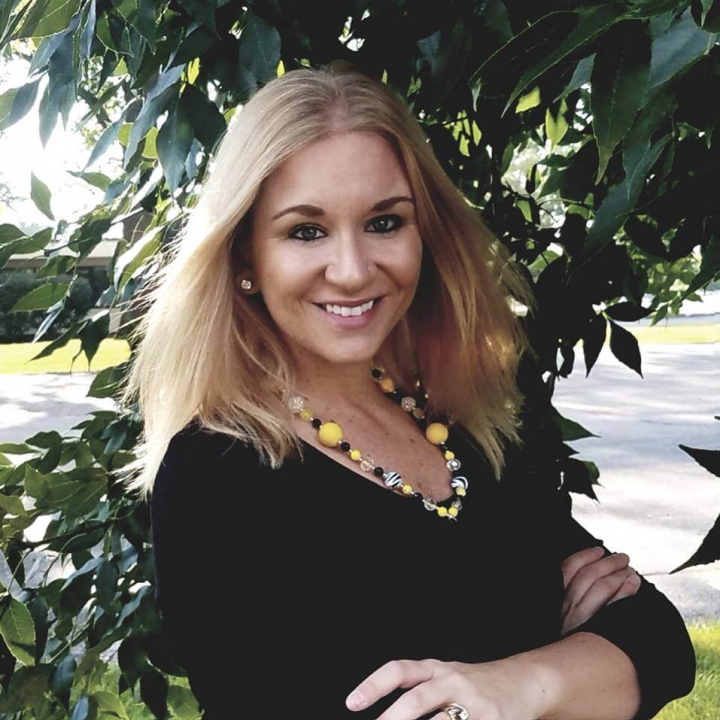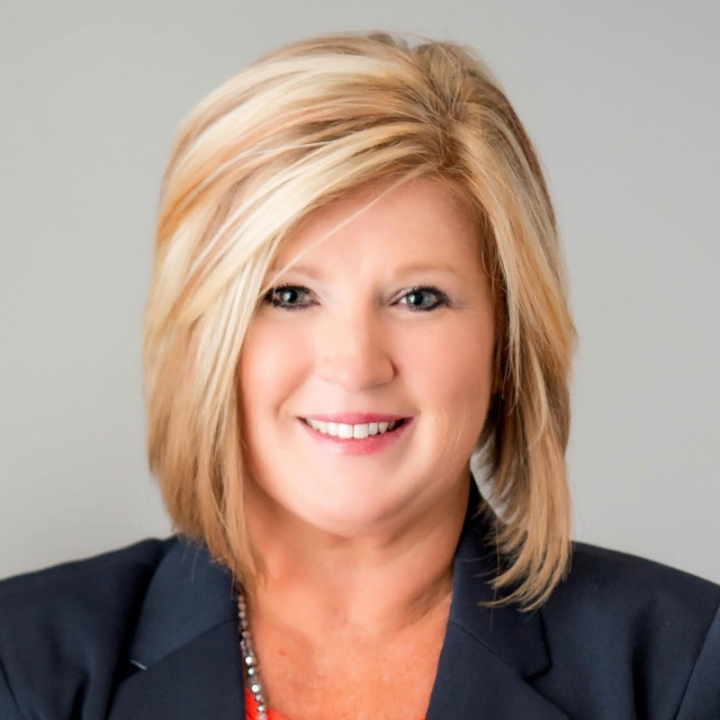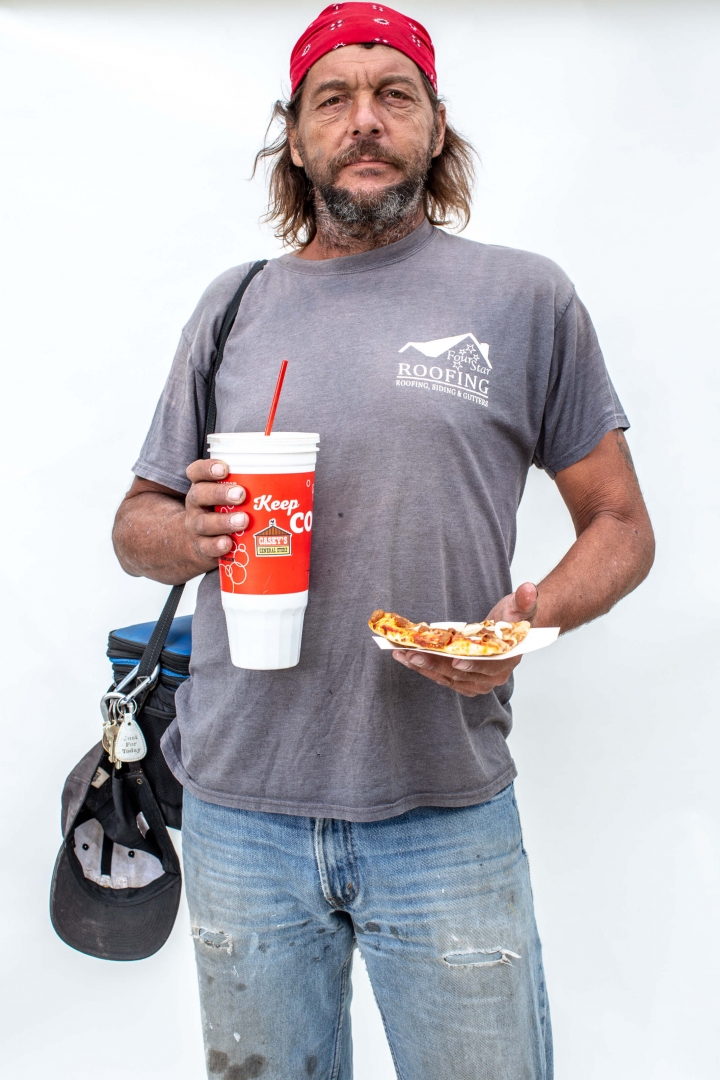
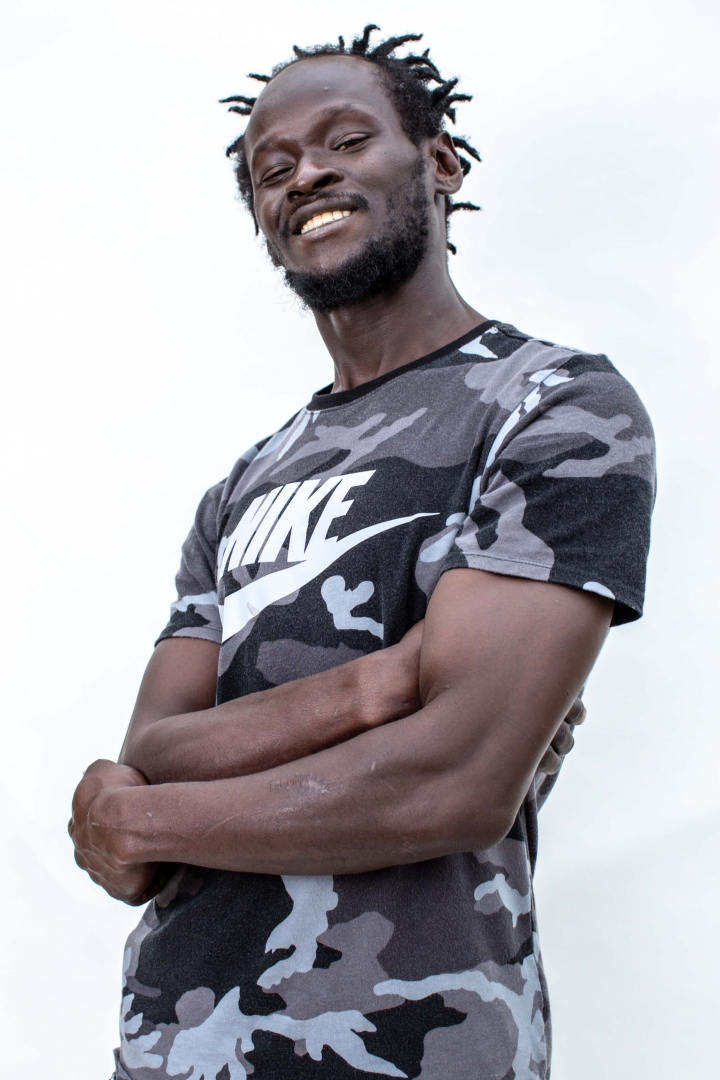

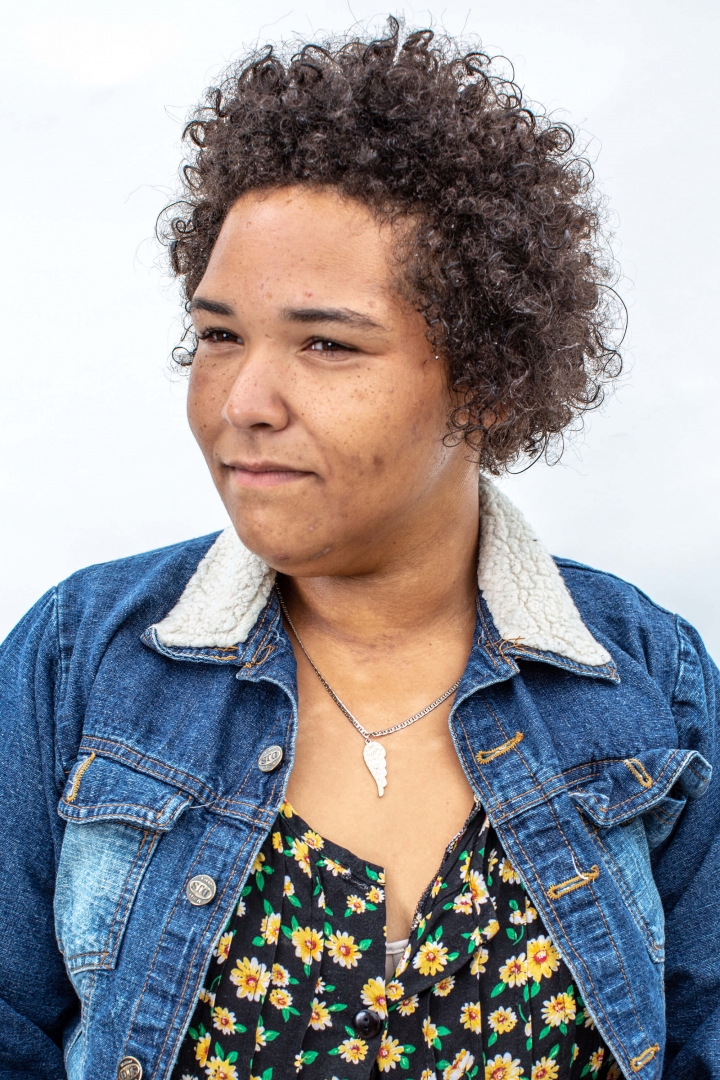
Health & Social Services
Using a drug user health framework, IHRC provides comprehensive health and social services to people who use or inject drugs.
Services prioritize the unique health concerns of people who use drugs, including overdose prevention, prevention of disease transmission, treatment for substance use dependency, and homelessness. IHRC utilizes a harm reduction model and meet participants literally where they're at, offering services in multiple low-barrier settings, including home deliveries, mobile outreach, and office-based services.
IHRC offers services in four metro areas and 23 of Iowa's 99 counties. We are consistently growing our services and our service area, and offer the opportunity for groups of individuals to bring harm reduction services to their community by implementing chapters of the Iowa Harm Reduction Coalition.
IHRC's service portfolio can be divided into two programmatic areas: overdose & infectious disease. All services offered are centered on the prevention and treatment of overdose and infectious disease. With regards to overdose, services include overdose prevention training, naloxone distribution, intensive patient navigation for linkage to care, and engagement in peer recovery support services. With regards to infectious disease, services include counselling, education, and distribution of materials for the prevention of viral, bacterial, and fungal infections associated with drug use (emphasizing HIV, hepatitis C, abscess, bacteremia, and endocarditis); HIV and hepatitis C testing; wound care; and patient navigation and intensive case management for linkage to care for hepatitis C.
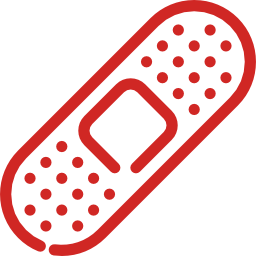
Risk Reduction Kits
We offer safer injection and risk reduction kits which include cottons, cookers, ties, sterile water, antibiotic wipes, vitamin c, band aids, and condoms. By improving access to these materials, we help people who inject heroin, meth, and other drugs to reduce their risk of contracting HIV and hepatitis C.
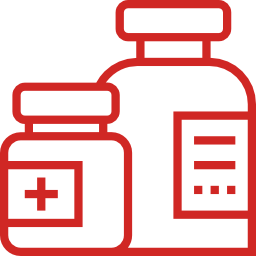
Naloxone Kits
Naloxone is the life-saving medication used to reverse an opioid overdose and is also commonly known as narcan. We provide free naloxone kits and training on naloxone use to individuals, families, and organizations and do not require a prescription or insurance.

Syringe Clean Up
Used syringes are often found in public spaces and construction sites throughout Eastern Iowa. We provide free syringe clean up and disposal of sharps upon request via our hotline, (319) 214-0540.
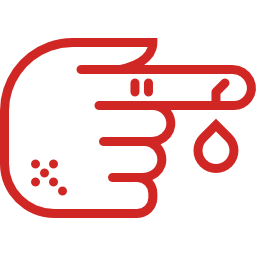
HIV/HCV Rapid Testing
IHRC provides free HIV and hepatitis C rapid testing. Tests can be administered anywhere, anytime and are available at IHRC’s office, via outreach locations, or can be take place in an individual’s home.

Hotline
We operate a 24 hour hotline to answer questions related to safer injection, vein health, and wound care. We also schedule supply mailings, deliveries, and drop offs through this number.
To schedule or request a supply mailing or delivery in Iowa City or Cedar Rapids, please call (319) 214-0540. For access in Des Moines & Central Rapids please call (515) 957-1252. Please note that we are unable to provide comprehensive medical advice through this hotline. In case of an emergency please call 911.

Fentanyl Test Strips
Because fentanyl increases the risk of overdose when present in heroin, meth, and cocaine, we provide drug testing materials that allow participants to test their drugs. Drug testing allows individuals to make informed decisions about their use, and to reduce the risk of overdose.

Linkage to Housing & Homelessness Services
For individuals experiencing homelessness, we provide linkage to supportive services and rapid re-housing programs.

Linkage to Substance Use & Drug Treatment
Because treatment can be difficult to access in Iowa, we work with individuals to help them gain access to local methadone and suboxone treatment programs, also known as MAT, for opiate dependency.

Patient Navigation for Hepatitis C
We provide linkage into care and patient navigation services for individuals living with hepatitis C. Because receiving curative hepatitis C treatment is a complicated process, we offer patient navigation services primarily for individuals enrolled in IA Medicaid.

Virtual Overdose Prevention Site
For people using drugs by themselves, IHRC offers a courtesy call or safety check system. Send a text message with your address and location to our anonymous hotline (319-214-0540) and request a safety check within a certain number of minutes. If you do not answer a phone call at that time, we will alert emergency medical services. If you’d like someone to stay on the phone with you, you may call the number above.

Rural Naloxone Access
IHRC mails naloxone around Iowa through the national naloxone mailing system, NEXT naloxone. Request a kit through NEXT, our website, or our hotline. IHRC also provides naloxone trainings to farmers, agricultural workers, and people working in Iowa feedlots in order to expand overdose prevention to rural communities in our state.

Sex Worker Support
IHRC provides outreach services to people engaging in club-based and full-service sex work. Services include access to condoms & lube, narcan distribution to local clubs, and non-judgmental and confidential counseling. Have a bad date? Call or text IHRC to help us share information about bad dates to keep others in the sex work community safe.
Looking for Suboxone?
Easy, On-Demand Access & Free Transportation Anywhere in Iowa
Suboxone is a medication that contains buprenorphine and naloxone that is used as a treatment for people who are dependent on opioids. Suboxone stops withdrawal effects and unlike full opioid agonists (for example: heroin, fentanyl, oxycodone), suboxone’s effects reach a maximum (ceiling effect). That means that it is used to make a person “feel normal,” rather than to create a sense of euphoria, a rush, or “a high.” People use suboxone in order to decrease or stop other opioid use.
When Suboxone is taken orally, it travels through the bloodstream to the brain where it attaches to opioid receptors. If Suboxone is taken intravenously, it will activate the naloxone in the medicine and will produce withdrawal symptoms. Sometimes people say that they took suboxone previously and it made them feel sick or “did not work.” This happens due to poor timing and incorrect dosing – timing when you will begin suboxone (in relation to when you last used another opioid) is tricky and if done incorrectly, can be very uncomfortable. Suboxone should be taken after withdrawal symptoms have begun and AT LEAST twelve hours since last using an opioid.
Use the SAMHSA treatment locator to find a Physician, Physician Assistant, or Nurse Practitioner near you who is licensed to prescribe suboxone
Call IHRC for rapid, same-day suboxone access
- Call us!
Call or text the Iowa Harm Reduction Coalition: 319-214-0540, anytime, 24/7. IHRC staff will talk with you about your opioid use and the treatment program. Want to know what taking suboxone is like, how long you may be on it, or how to find a good doctor? We can answer any questions you might have. This is informal and not an official evaluation. - Free uber ride
IHRC will provide you with a free Lyft or Uber ride* to the University of Iowa Hospital & Clinics (UIHC).
*Anywhere in Iowa that uber / lyft is available, 24 hours per day, 7 days per week. At the University, suboxone is available 24/7 in the Emergency Department for people who are in mild to moderate withdrawal. - Suboxone on-demand
At UIHC, an IHRC staff person will meet you at the ER. You are not required to complete a drug test or any blood / urine testing. You’ll talk with a provider, begin suboxone, and leave with a (roughly) two-week supply of suboxone. No insurance? No worries, the medication won’t cost you. Have Medicaid? There is no co-pay required. - Follow-up
IHRC staff will schedule your follow-up appointment with the UIHC MAT clinic within the next 10 days. IHRC can help with transportation to appointments if needed. At your first appointment, your doctor will ask you more about your treatment goals. Whether your goal is decreased use or total abstinence, your doctor will not shame or scold you for your choices: this is a harm reduction friendly clinic.
We are the state's largest free naloxone distribution program and provide opioid overdose prevention education.
Call or text (319) 214-0540 in Eastern Iowa or (515) 207-5202 in Des Moines and Central Iowa to receive a free naloxone kit.
Hepatitis C Patient Navigation & Linkage to Care Program
IHRC began to offer hepatitis C (HCV) rapid screening at our outreach sites in 2017. We quickly noticed that for many of the individuals in our program who received a positive rapid screen and later an official diagnosis with an active HCV infection (following a positive confirmatory test), a paper referral to treatment did not get the desired results. Simply put, the clients we referred to primary care providers to begin treatment did not always make their way to these providers. For the ones who did engage in treatment, they encountered a complicated process with many insurance barriers, many required visits, many different providers, and a need for time, transportation, and finances, as well as stigma, judgement, or shame related to their history of IV drug use. In Iowa, less than 5% of individuals diagnosed with an active hepatitis C infection receive the curative medications each year. We set out to improve this – we wanted to make sure that more people who are diagnosed with HCV are able to receive the cure. Especially those individuals who are at high risk for transmitting the virus to other community members, particularly through IV drug use. Providing access to HCV treatment isn’t just about stopping the spread of a virus. Because HCV is the leading infectious disease killer in the U.S. (killing more people annually than the next 60 leading infectious diseases combined), treatment is about preventing future cases of liver disease, liver cancer, liver failure, and ultimately liver transplantation. All of these coming at a cost: the health, wellbeing, and happiness of individuals and the coffers of our state’s health care system (in particular, the Medicaid program).
In September 2018, IHRC established a patient navigation program in Cedar Rapids and Iowa City to help patients to address these barriers. The goal of the patient navigation program? To work with every individual client to address their unique goals and challenges and do whatever it takes to ensure that clients are able to receive treatment for HCV, if they want it. With funding from the Prevent Cancer Foundation, and later the City of Iowa City Racial Justice & Social Equity grant, the Iowa Department of Public Health (via a grant from ASTHO), Telligen, and NASTAD (via a grant from CDC), we established a patient navigation program that pairs individuals living with HCV with a case manager. The case manager provides rapid screening, confirmatory testing, and schedules appointments directly with a gastroenterologist-hepatologist. The case manager works to ensure that lab work can easily be completed in advance of appointments, and provides transportation to and accompanies clients to their physician visits if requested. The case manager is able to assist clients with understanding the treatment process and the natural course and epidemiology of hepatitis C, as well as help patients to feel confident in a health care setting where they may have previously experienced stigma or trauma as a result of shame and judgement that are connected to their history of injection drug use. Once clients attend an initial provider visit, the case manager works to maintain contact with them in order to ensure continued engagement in care over the period of time necessary to obtain approval for access to the curative medication. For a patient population that often is denied treatment by IA Medicaid due to sobriety and fibrosis requirements, staying in touch over the long-term is key: this patient population is often only able to access treatment through a free drug program, which can only be accessed following Medicaid denial. This process is timely, and means that patients need to be in touch. For a group of patients that often lack consistent access to cell phones or housing, this can be especially difficult.
In the first one year of the pilot program in Eastern Iowa, we administered 400 rapid screens to individuals who actively injected drugs or had a history of intravenous drug use. Of those individuals, 20.75% (83 individuals) had reactive screens. 15.66% (13) were determined to have cleared the virus on confirmatory testing. This meant that 84.34% (70 individuals) were identified as having an active hepatitis C infection. Of this number, 10% (7) died or were incarcerated during the pilot period (5 died due to an overdose and 2 were incarcerated).
"As a person without health insurance, I found it easier to complete hepatitis C testing and treatment through this process. I was unsure about going to visit a doctor because I don't have a close relationship with a provider - I don't have a doctor, I don't know any doctors, and I never have. I wouldn't want to go and talk with someone I've never met before about my IV drug use. I have built trust with IHRC and the services are non-traditional because they're provided in a place that isn't clinical. At IHRC, everyone has the same experiences and everyone knows what IV drug use is like, so no one judges or shames one another. I haven't been to a doctor in over ten years since I was a teenager and I have been using IV drugs that whole time. I've been meaning to go and get tested for hep C during that time, but I didn't have anyone that I trusted to go and get testing from. Once I met IHRC, it was a lot easier for me to establish trust with a provider and I felt comfortable getting tested. When I received the test it was at my home and in a very comfortable encounter. I got the test while also learning how to be a volunteer who can administer the tests, and that made me feel a lot more comfortable that I don't just have a stigmatized infection, but that it is something that I can use for positive change. I can help other people like me, who use IV drugs and are unlikely to get medical care - to get testing and treatment."
Jordan Larson, IHRC Volunteer
Of the 63 individuals engaged in the treatment process, 14.2% had been cured at the end of the pilot program period (9 achieved SVR and were cured of active HCV infection). 55% of these individuals (35) were engaged in the treatment process and were awaiting approval to receive medication, currently taking the medication, or had finished the medication and were awaiting confirmation of having achieved SVR. 30% (19) were lost to follow-up or they chose not to continue with treatment. These 19 individuals were primarily individuals experiencing homelessness who did not have cell phones and moved out of the shelter where they had been staying, or decided not to continue engaging in treatment at the present moment due to other existing life priorities. With continued grant support for this program, we plan to continue offering testing services and working with individuals currently receiving care.
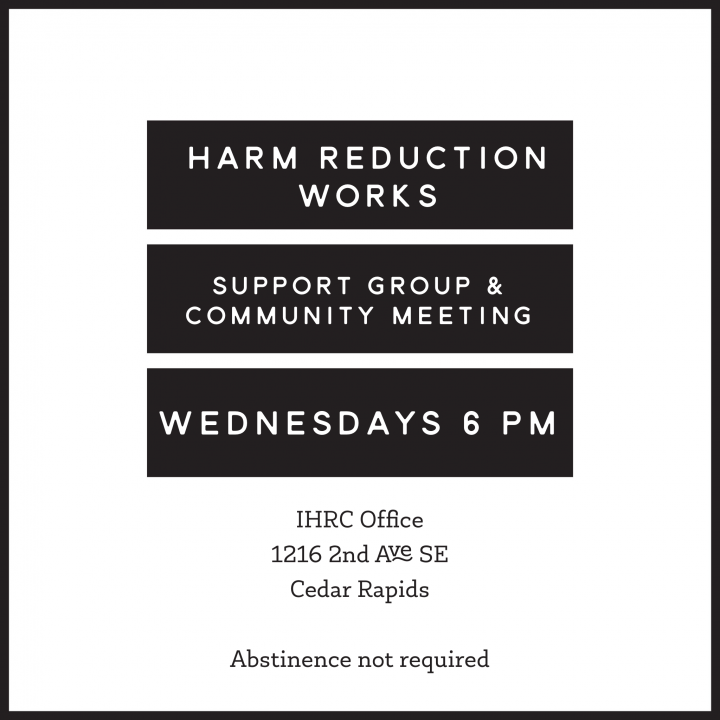
What our participants say
“To IHRC, it doesn’t matter where I’ve been, I can tell they really care about me for no reason at all. Meeting IHRC made me feel less lonely and alone, and think that maybe something else good could happen in my life.”
Participant in Cedar Rapids
“IHRC does a great service for people like me that nobody usually thinks about. I appreciate IHRC coming out [to the streets] and sharing your love. That’s worth more than anything.”
Participant in Cedar Rapids
“You’re not encouraging me to use drugs, you’re just recognizing that I’m going to use either way, and helping make sure I don’t get a disease or die.”
Participant in Cedar Rapids


